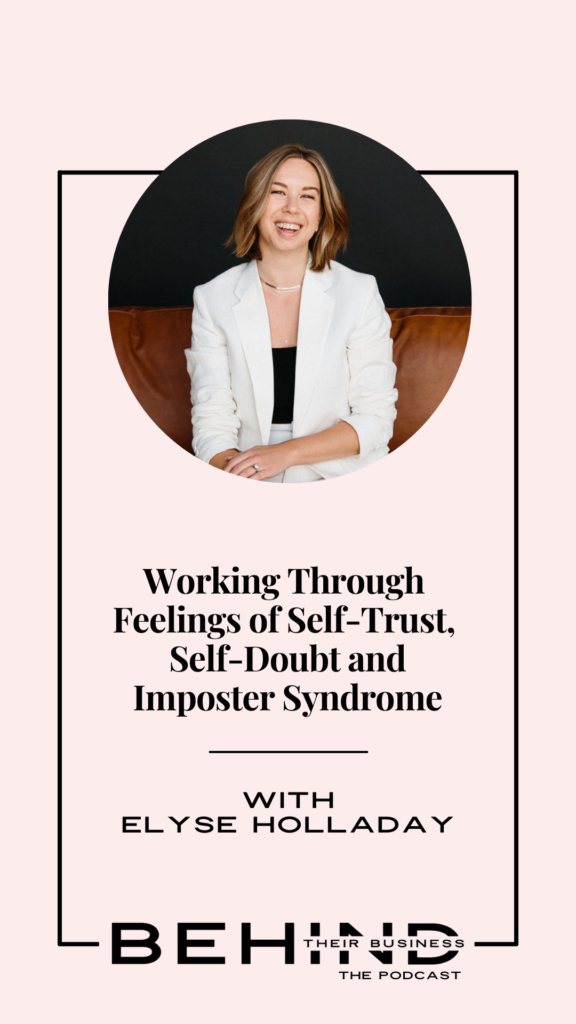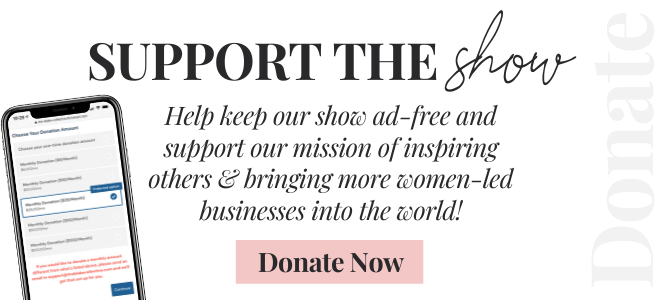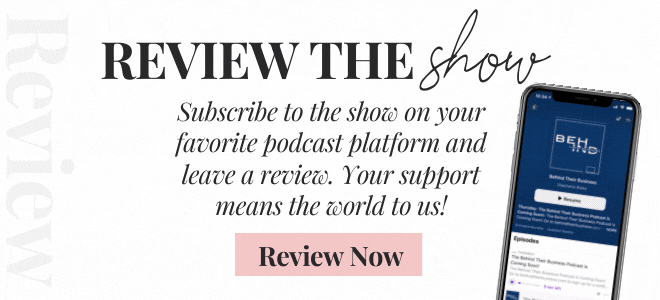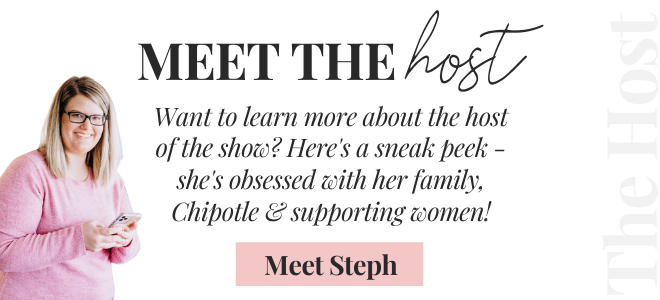WORKSHOP
Free
In this LIVE training, you'll learn the exact system to work less than 20 hours per week and make 6+ figures in one year with 1 team member & no ads.
Working Through Feelings of Self-Trust, Self-Doubt and Imposter Syndrome With Elyse Holladay
January 10, 2022
Can you give more background on what led you to start your business?
Elyse: I quit my full-time job in March of 2020. This is like my second career, and I think a lot of entrepreneurs come to their business in that same way like you have a whole career, and then at some point, you’re like “this isn’t really fulfilling me anymore”, so that was definitely what it was for me.
I was a software engineer, a developer, and a product manager in tech for about ten years. I left that right at the statistical ten-year mark for women. I was really looking for something that was more fulfilling to me, something that was a little more value-driven, something that I was just a little bit more excited about, and I started the way a lot of entrepreneurs do.
I had an idea for something that I was interested in (personal styling) and knew that I could help other people with this gift.I know you hear all the time like “stay in your job until you have made this much money”, but I was just like “I’m out of here! Let’s figure it out!”
And then, of course, COVID happened, and it was like well we’re just gonna see what happens.
“When your back is up against the wall, that’s when you see who you really are, that’s when you can see what you’re truly made of.”
Was there a certain point or catalyst for you leaving your previous career or was it something you had been thinking about for a while?
Elyse: I think there were a couple of different turning points. I think things kind of came to a head at work. I was going to stay for my year-end bonus, and now that I don’t have that, it was harder to convince myself.
Another thing that happened was talking to an acquaintance of mine who has a successful product-based business here in Austin, where I am. We went for a long walk out on the lake. She said something to me that I don’t think I would ever forget.
I was talking about how stuck I felt and how I wasn’t sure if this style coaching thing could even be a business and I was I like totally out of my mind to quit even though I didn’t have clients. I didn’t have anything set up, and she just looked at me and said, “When you talk about this, your hold demeanor changes, your face lights up, you smile I can hear it in your voice I can see it in your face, you know.”
She said “I don’t know if it matters right now if you have everything set up for clients and certain things. You’re always going to regret not trying!”
That was the catalyst to me starting and I rage quit the next week. I was like, “why am I spending all of my energy for somebody else’s vision that I don’t even agree with when my whole heart is yearning to go try this?”
What is a personal style coach?
Elyse: As a personal style coach, I work with my clients to help them find their style, look at their shopping habits, self-identity, and we do a mix of style education.The style education allows them to know what their style is, understand how their clothes fit, know the difference between fabric quality colors..etc.
I’m not a personal stylist or a personal shopper; I’m a lot more interested in teaching my clients the skills they need to know to navigate beauty standards and shop for themselves. I’m way more interested in the mindset and emotional support, the habits of science, the self-reflection…etc.
“Clothes are so much more than just clothes.”
How do you differentiate between self-doubt and imposter syndrome and what lessons have you learned?
Elyse: I spent a lot of time thinking about this because in when I was in my tech job in 2014, I actually gave a conference talk about impostor syndrome.I also ran across a really great article in the Harvard Business Review called “Stop telling women they have impostor syndrome”.
Impostor syndrome does not consider all the systemic impacts of why we feel this way and why we feel this self-doubt. The original research of impostor syndrome and the effect of how systemic racism, classism, biases, and gender biases were absent in that research in this article; they say what’s less explored is WHY impostor syndrome exists in the first place and what workplace systems play in exasperating it.
Impostor syndrome blames individuals without accounting for the historical and cultural context of how it manifests, especially for women of color, and it really has us thinking about how do we fix ourselves, like “what’s wrong with me and not what’s wrong with the system that makes me feel this way?”
“I don’t have a syndrome. I’m awesome and I have doubts and that’s normal.”
CONNECT WITH ELYSE HOLLADAY
RESOURCES MENTIONED
- The Extended Mind by Annie Murphy
- Stop Telling Women They Have Imposter Syndrome (Harvard Business Review)
- Apply For A Scholarship
- Donate To The Show
- Join our Community & Get Free, Weekly Trainings



